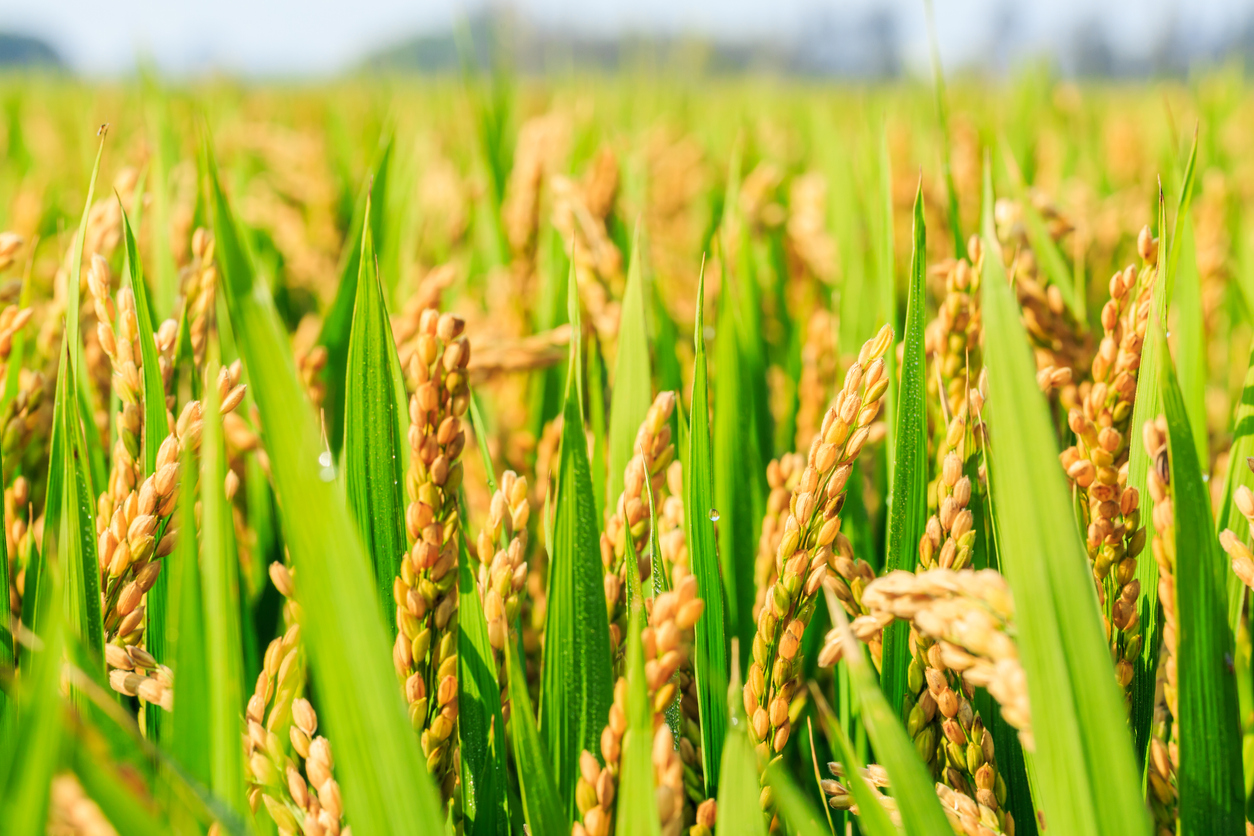
Tricoderma Gene Confers Sheath Blight Resistance to Rice
August 17, 2022| |
Punjab Agricultural University scientists developed sheath blight resistant rice using an antifungal gene from Trichoderma. Their findings are published in Transgenic Research.
Sheath blight, caused by the fungal pathogen Rhizoctonia solani, is one of the most devastating threats to rice production that accounts for up to 50% of yield losses. The pathogen penetrates leaf blades and sheaths, which causes plant necrosis. At present, no major disease resistance gene against the pathogen has been found. This led the researchers to search for ways to confer disease resistance to rice.
Transgenic indica and japonica rice cultivars were developed by introducing antifungal β-1,3-glucanase transgene cloned from Trichoderma. Up to 5-fold expression of the transgene was confirmed. Plants carrying high levels of β-1,3-glucanase exhibited moderate resistance to the pathogen. Disease severity was also observed to be significantly reduced compared to non-transgenic plants.
Based on the results, β-1,3-glucanase has a role in imparting resistance to sheath blight in rice.
Read the research article in Transgenic Research.
| |
You might also like:
- Trichoderma Gene Expressed in Strawberry Confers Fungal Diseases Resistance but Affects Plant Growth
- Gene from Bitter Melon Protects Rice from Sheath Blight Disease
- Tissue-specific Expression of AtNPR1 Gene in Rice Confers Sheath Blight Resistance
Biotech Updates is a weekly newsletter of ISAAA, a not-for-profit organization. It is distributed for free to over 22,000 subscribers worldwide to inform them about the key developments in biosciences, especially in biotechnology. Your support will help us in our mission to feed the world with knowledge. You can help by donating as little as $10.
-
See more articles:
-
News from Around the World
- FAO Reports Decline in Global Food Commodity Prices for July
- Network of Plant Scientists to Help Improve Biotech Research Capacity Globally
- Synthetic Genes Found to Modify Root Structures and Increase Plant Resiliency
- Research Reveals Circadian Clock's Guiding Role in Plant Cell Differentiation
- Australian Scientists Identify Natural Plant Mechanism for Water Loss
- Workshop to Explore Policy Considerations for Gene Editing in Asia and Australia
- Vietnamese Government Push for Agbiotechnology to Help Mitigate Climate Change Effects
- EFSA: Five-event GM Stack Maize and Subcombinations as Safe as Non-GM Maize
-
Research Highlights
- Tricoderma Gene Confers Sheath Blight Resistance to Rice
- Study Finds Long Noncoding RNA that Enhances Plant's Tolerance to Cold
- Pac1 Gene Integrated Into Sugarcane to Promote Resistance Against SCSMV
-
Plant
- CRISPR Reveals Role of OsPPR9 in Rice Chloroplast Development
-
Read the latest: - Biotech Updates (February 18, 2026)
- Gene Editing Supplement (January 28, 2026)
- Gene Drive Supplement (February 22, 2023)
-
Subscribe to BU: - Share
- Tweet

